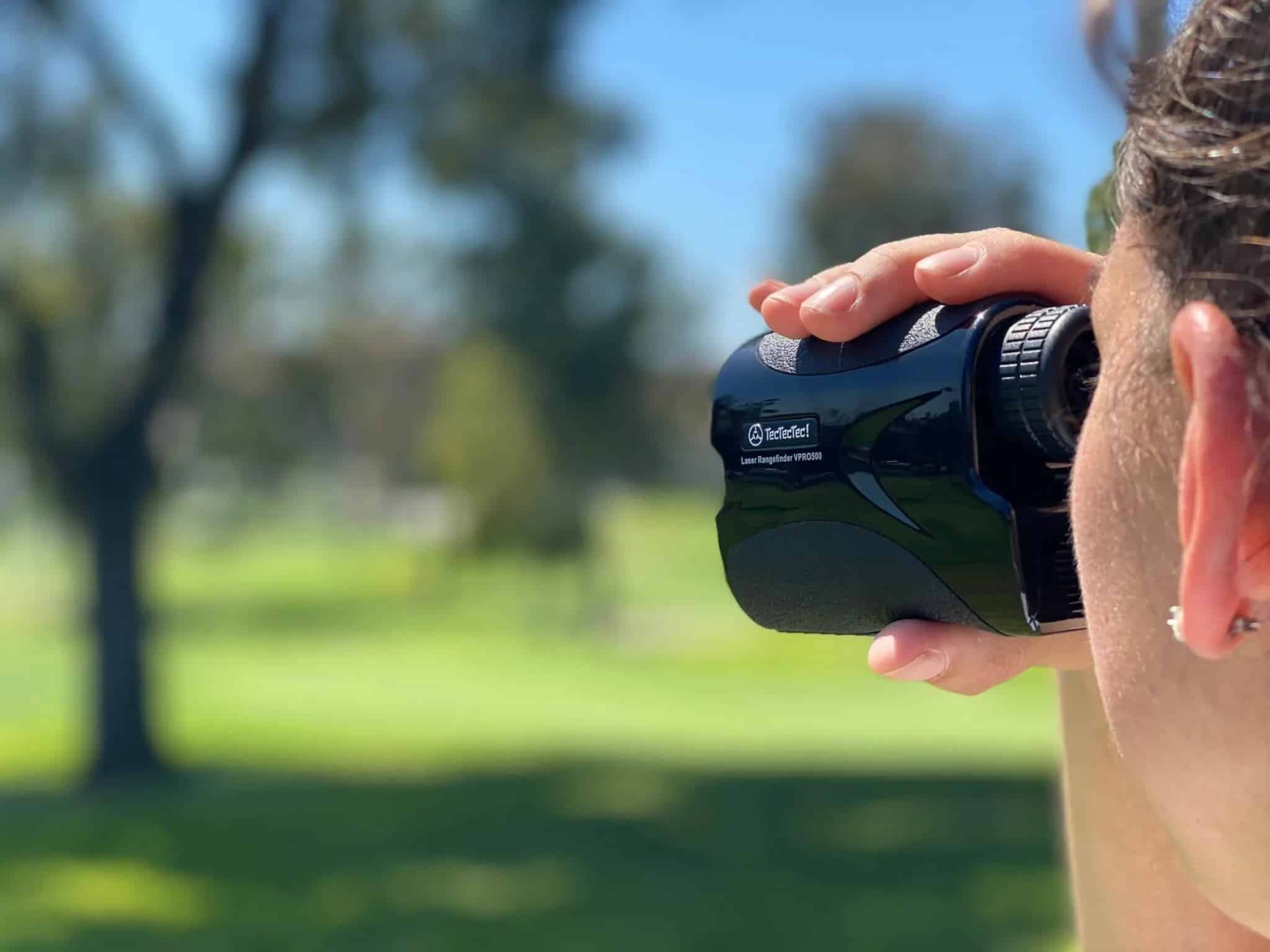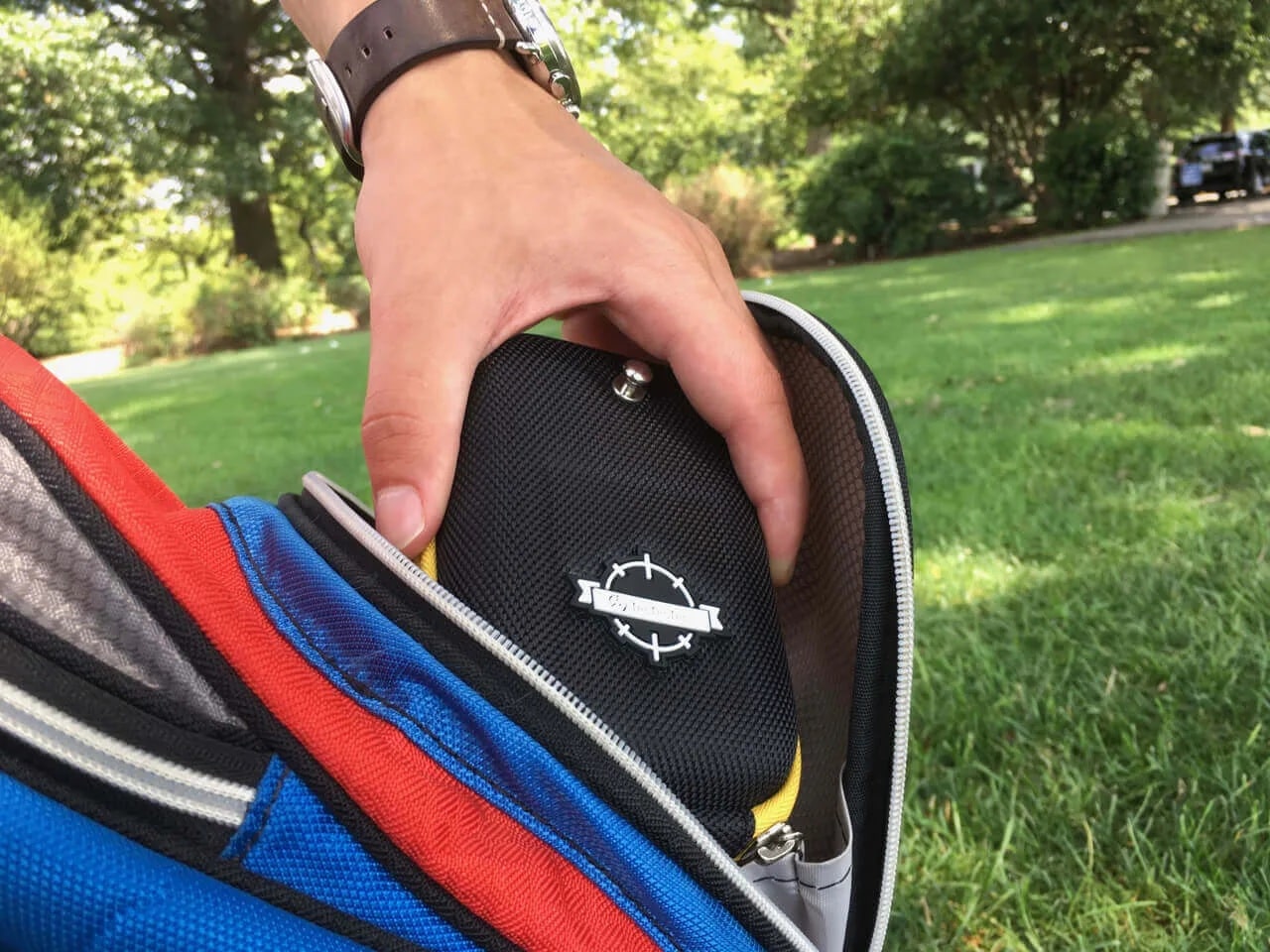I'll admit it – I'm a rangefinder snob. Or at least I was. After testing dozens of models from Bushnell, Leupold, and Garmin over the years, I'd convinced myself that anything under $400 was basically a toy. So when the TecTecTec VPRO500S landed on my desk with its sub-$200 price tag, I figured I'd use it for a round or two, write a polite review about it being "decent for beginners," and move on.
That was six months ago. The VPRO500S is still in my bag, and my $450 Bushnell is collecting dust in the garage. Let me explain why this budget rangefinder completely altered my viewpoint on what golfers actually need versus what marketing departments tell us we need.
Looking for an affordable yet accurate golf rangefinder? Our Tectectec VPRO500S review reveals how this device delivers fast, reliable distance readings to improve every shot.
The initial time I used the VPRO500S at my home course (a tree-lined nightmare where every flag seems to have branches lurking behind it), I expected the usual budget rangefinder frustration. You know the drill – you're trying to shoot the flag, but the device keeps grabbing the trees behind the green, or worse, it can't decide what you're aiming at and just gives you nothing.
The Pin Sensor technology on this thing is legitimately impressive. I'm talking about the kind of target acquisition I've only experienced with rangefinders costing twice as much. It locks onto flagsticks through rain, through those annoying heat shimmer days, and yes, through the scattered branches that frame nearly every green at my course. The device vibrates subtly when it finds the pin – not the aggressive buzz some models use that makes you feel like you're holding an angry bee, but a confident little pulse that says "got it."
What really sold me was a rainy Tuesday round last month. The kind of day where water droplets are everywhere and most rangefinders turn into expensive paperweights. The VPRO500S cut through the mess and gave me consistent readings all eighteen holes. My playing partner with his fancy Nikon? He gave up by hole seven and started asking me for distances. The device's water resistance rating ensures reliable performance even in challenging weather conditions, making it a dependable companion for year-round golf.
The continuous scan mode deserves its own mention here. Hold down the button and pan across the scenery – distances update in real-time, floating clearly in the display. It's smooth, it's fast, and it doesn't drain the battery like you'd expect. I use this constantly for checking distances to hazards, finding layup spots, and generally mapping out my strategy for each hole.

Here's where the VPRO500S variant really earns its keep. The slope-adjusted yardages aren't just some gimmicky add-on – they're genuinely life-changing for your course management. I play a lot of mountain courses here in Northern California, and the elevation changes can turn a seemingly straightforward 150-yard shot into anything from a hard 8-iron to a smooth pitching wedge.
The slope calculations happen instantly. No waiting, no second button to push, no complicated math. Point, shoot, and you get both the actual distance and the "plays like" yardage. The difference can be shocking – I've seen 20-yard adjustments on some of the more severe uphill approaches at my home course. Before this rangefinder, I was basically guessing on those shots. Now? I'm hitting more greens than I have in years.
Let's be clear about something: the slope mode isn't tournament legal when it's activated. But here's the beauty of the VPRO500S – you can turn it off. When I play in my club championship or any other competition, I simply disable slope mode and I'm good to go. No need to buy a separate "tournament" rangefinder like some brands want you to do. The fact that this device is tournament legal when slope is disabled means you only need one rangefinder for both competitive and casual play.
The real value shows up in your everyday rounds and practice sessions. Understanding how elevation affects distance has made me a smarter golfer in general. Even when I can't use slope mode in tournaments, the knowledge I've gained from using it regularly has improved my club selection instincts dramatically.
At this price point, I expected plastic fantastic construction and optics that would make me squint. Wrong on both counts. The VPRO500S feels solid in hand – not heavy, but substantial enough that you know you're holding a real piece of equipment. The rubberized armor coating provides good grip even with sweaty hands or light rain, and after six months of regular use (including a few drops onto cart paths), it still looks nearly new.
The 6x magnification with fully multi-coated optics is the sweet spot for golf. Any more magnification and hand shake becomes an issue; any less and you're struggling to see the flag clearly from 200+ yards. The image is crisp and bright, even in those tricky early morning or late afternoon lighting conditions. The 7-degree field of view means you're not looking through a straw – you can actually see enough of the scenery to quickly find your target.
I've compared the optical quality side-by-side with rangefinders costing $300-400 more, and honestly? Unless you're an optics nerd with perfect vision, you're not going to notice much difference. The VPRO500S gives you everything you need: clear image, good light transmission, and enough magnification to confidently identify your target.
The focus adjustment is smooth and stays put once set. I adjusted it once for my vision when I first got it, and haven't touched it since. Some rangefinders I've tested require constant refocusing, which is annoying when you're trying to play quickly.

TecTecTec claims 540 yards of ranging capability with 1-yard accuracy, and from my testing, that's not marketing fluff. I've successfully ranged trees, water hazards, and even cart paths well beyond 500 yards. For flagsticks, which is what really matters, I'm getting consistent reads out to about 275 yards, which covers 99% of approach shots for amateur golfers.
The accuracy is what really matters though. I've checked the VPRO500S against course markers, GPS devices, and other rangefinders dozens of times. It's consistently within a yard of other devices, often matching my buddy's Bushnell V5 exactly. For a rangefinder that costs less than half of the Bushnell, that's extraordinary.
Battery life has been excellent. I'm still on my second CR2 battery after six months of regular use (2-3 rounds per week). The device powers off automatically after a period of inactivity, which helps preserve battery life. My only gripe here is the lack of USB charging – in 2024, it feels like everything should be rechargeable. But when batteries last this long and cost a few bucks, it's hard to complain too much.
The Primary Target Priority mode is my default setting. It guarantees the rangefinder locks onto the closest target (usually the flag) rather than objects in the background. Distant Target Priority is useful for driving ranges or when you're trying to range something specific beyond the flag. ProScan mode is great for quickly checking multiple distances – just hold the button and pan across your targets.
Let's talk about what isn't great. The battery compartment design is finicky. The spring that holds the battery in place is overly sensitive – if you don't get the cap on just right, the device won't power on. It took me a few attempts to figure out the right technique, and even now it occasionally takes two tries. Not a deal-breaker, but annoying.
The included case is functional but basic. No magnetic closure, no belt clip that actually stays put, just a simple pouch with a drawstring. I ended up buying a $15 magnetic case from Amazon that lets me stick the rangefinder to my cart. TecTecTec should really include something better at this point.
There's no vibration or audio confirmation in the base model when you lock onto a target beyond the subtle pulse I mentioned earlier. Some golfers prefer a more obvious confirmation. Personally, I find the visual lock indicator sufficient, but if you're used to aggressive haptic feedback, this might feel underwhelming. At least TecTecTec backs the product with a 2-year warranty and responsive customer service if you encounter any issues.
Looking for an affordable yet accurate golf rangefinder? Our Tectectec VPRO500S review reveals how this device delivers fast, reliable distance readings to improve every shot.
Yes, you can use the VPRO500S in tournament play, but you'll need to turn off the slope mode initially. The rangefinder is USGA-compliant when you switch to one of its three non-slope modes. Its +/- 1 yard accuracy and Pinseeker technology meet tournament standards. Just make sure you're familiar with switching modes before your round, as using slope mode during competition will get you disqualified.
You'll get a 2-year limited warranty with your TecTecTec VPRO500S rangefinder, but you must register it online shortly after purchase to activate the full coverage. If you don't register or buy from unauthorized sellers, you're only covered for 1 year. The warranty covers quality-related defects and includes repair, replacement, or return options. You'll also benefit from a 30-day full refund policy if you're not satisfied with your purchase.
Yes, you'll receive a carrying pouch with your VPRO500S rangefinder. It's included in the standard package along with other accessories like a microfiber cloth and wrist strap. The pouch provides basic protection and storage for your device when you're not using it. While it's a soft pouch rather than a hard case, and some users wish it had quick-access features like magnetic or Velcro closures, it'll keep your rangefinder safe between uses.
You'll typically get 40-50 rounds from a single CR2 battery, which covers most golfers' entire season. Some users report even better performance with 70-80 rounds per battery, depending on how often you're taking measurements. If you're using scan mode frequently or taking constant readings, you'll see shorter battery life. The device doesn't have a rechargeable option, so you'll need to replace the battery when it's depleted, but that's usually once per year.
The VPRO500S is water-resistant and rainproof, not fully waterproof. You can use it confidently in rainy conditions on the golf course, and it'll handle wet weather well with its rainproof body design. However, you shouldn't submerge it in water or expose it to excessive moisture. The included premium case adds extra protection against bad weather. Users rate its rain resistance at 9.1/10, but remember it's not designed for water immersion.
After six months of regular use, I can confidently say the TecTecTec VPRO500S is the best value in golf rangefinders today. If you're a mid-to-high handicapper looking for your initial rangefinder, this is a no-brainer. You're getting technology and performance that would have cost $500+ just a few years ago.
But here's the surprising part – even if you're a low handicapper or someone who already owns a premium rangefinder, the VPRO500S makes sense as a backup or practice round device. The slope feature alone makes it worth having for those casual rounds where you want to dial in your club distances with elevation changes. At this price, you can keep one in your car, one in your bag, and still spend less than a single premium rangefinder. The TecTecTec VPRO500S proved to me that paying more doesn't always mean getting more. Sometimes, the budget option is just plain better.